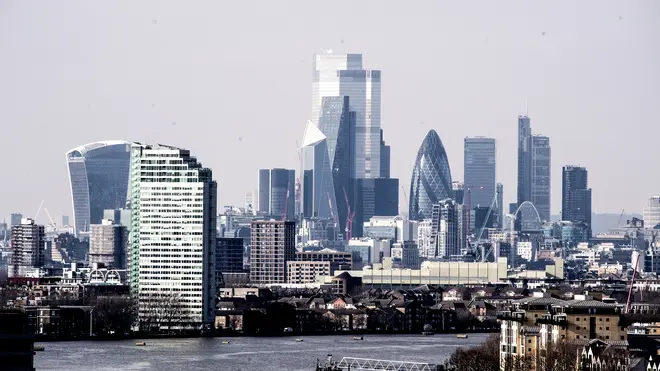
James O'Brien 10am - 1pm
7 May 2021, 10:04

The National Cyber Security Centre has published new guidance on protecting connected places and infrastructure.
The UK’s cybersecurity agency has warned that connected infrastructure could be targeted in cyberattacks and urged councils to better prepare themselves.
Connected places – often called smart cities – use devices and sensors linked over a network to improve the efficiency of services, for example, configuring traffic lights to cut congestion.
But the National Cyber Security Centre (NCSC), which is a part of GCHQ, has warned that such systems could appeal to hackers because of their critical nature and the potential disruption which could be caused by taking them offline.
It says that such networks must be protected from disruption and has published new tips for councils on how to better build and protect them.
Dr Ian Levy, the NCSC’s technical director, pointed to a classic British movie as an example of the potential impact of such disruption.
“One of the first Hollywood depictions of a cyberattack was against critical infrastructure,” he wrote in a blog.
“It was an attack against a city’s centralised traffic management system in the 1969 film The Italian Job.
“As part of an elaborate heist, a dodgy computer professor (played by Benny Hill) switches magnetic storage tapes for the Turin traffic control to create a gridlock. Chaos ensues, they ‘blow the bloody doors off’, and the thieves escape with the gold.
“A similar ‘gridlock’ attack on a 21st-century city would have catastrophic impacts on the people who live and work there, and criminals wouldn’t likely need physical access to the traffic control system to do it.”
In response to the threat, the NCSC’s new guidance includes principles for councils and local authorities to help secure connected places and their underlying infrastructure.
The principles offer advice on designing and managing smart city networks to prevent mass data loss or rogue actors gaining access for spying or other purposes.
“Local authorities are using sensors and intelligent systems to improve our lives and make our cities more efficient and environmentally friendly,” Dr Levy said.
“While these benefits should be embraced, it’s important to take steps now to reduce the risk of cyberattacks and their potentially serious impact on these interconnected networks. I urge every individual and organisation establishing a connected place in the UK to consult our newly published cybersecurity principles.
“It’s our collective responsibility to ensure that our cities of the future are safe and resilient.”
Last month, GCHQ director Jeremy Fleming warned that the UK and its allies must adapt to evolving technology to stay ahead of digital threats, naming the speed of technology growth in China and Russia as major concerns.
Mr Fleming said the coronavirus pandemic and the increased reliance society had placed on technology had not only benefited the UK and its allies, but also “our foes”, who have exploited “accelerations in connectivity and poor cybersecurity”.
In response to this threat, Mr Fleming said it was now vital that the UK adapt in order to keep up with the evolving threats, calling it a “moment of reckoning”.